Released: 21st February 2000
Writers: Leah Haywood / Jörgen Elofsson
Peak position: N/A
Chart run: N/A
Since the early ‘00s, Leah Haywood has been a consistent presence in the music industry as part of the Australian songwriting and production team Dreamlab. She’s worked with acts including Selena Gomez, Aly & AJ, Fifth Harmony, Katy Perry, Britney Spears and Justin Bieber. But before that, Leah Haywood released her own album and appeared to be on the cusp of a breakthrough in the UK with We Think It’s Love.
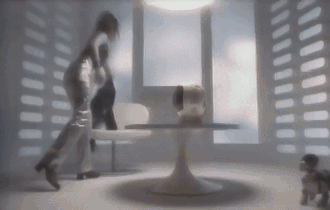
The events that led to Leah Haywood signing with Sony Records read like a classic case of being in the right place at the right time. While working as a musical support act for a comedian, she was approached by the crew of a televised variety show. After listening to her demo CD, they offered Leah Haywood the chance to perform, and an Australian producer spotted that broadcast. Two weeks later, she was signed to Sony Records and began work on her debut album. But there was a bit more to it than that. Leah Haywood was astute enough to realise well before this that opportunities in the music industry relied on more than being able to write songs and play the piano. So, after dropping out of school, she auditioned for – and was accepted to – the Conservatorium of Music in Paris, ensuring she made the right connections. There may still have been an element of good fortune in landing a record deal, but Leah Haywood had nonetheless taken steps to give herself the best shot at success.

It’s clear Sony had major aspirations. Her debut single – We Think It’s Love – was recorded at Cheiron (she also provided backing vocals on Celine Dion’s That’s The Way It Is) and co-written by Jörgen Elofsson. The studio was riding the crest of a wave with Britney Spears, Backstreet Boys and *NSYNC, so there could scarcely have been a better opportunity to launch Leah Haywood in Australia. Yet, importantly, We Think It’s Love doesn’t come across as a transparent attempt to mimic that sound. Indeed, nothing about the song would overtly link it to Cheiron; the warm guitar riffs and pulsing keyboard melodies are more akin to the breezy pop-rock that emerged a few years later.

Leah Haywood‘s voice also gives We Think It’s Love a sense of being slightly ahead of its time. Her inflexions have a distinctively quirky twang (not entirely dissimilar to Stacie Orrico), and there’s an immediately engaging sense of storytelling: “I never wanted, I never wanted to be the one telling you this way, but I can’t keep it, I can’t keep this to myself anymore another day”. As the track gets more involved, so too does Leah Haywood’s performance; the second verse, in particular, feels more like the confessional musings of a singer-songwriter (“You don’t need me, oh no, you don’t show me that you want me, I’m just hanging in your way”) wrapped up in a sunny, breezy pop song.
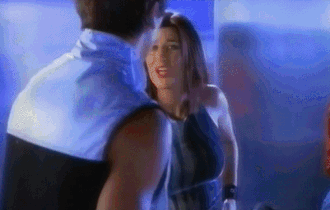
Yet, while there’s much to enjoy about We Think It’s Love, the focus – and main selling point – of the track is, undoubtedly, the chorus: “We think it’s love love love love love, but it’s crazy, we can’t get it right, still we carry on; is this love love love love love, thinking maybe, we’ve been going on, far too long”. It’s one massive, perfectly crafted, hook-laden earworm, and the song – sensibly – never strays too far from deploying it. Rarely has a breakup been conveyed with such uplifting euphoria as in We Think It’s Love,…and that’s before a gravity-defying key change, complete with soaring ad-libs (“Is this lo-o-o-o-o-o-o-uh-uh-ove”) that bring We Think It’s Love to a gratifying conclusion. This is the kind of track with the ability to cut through almost any mood. Even by Cheiron’s high standards, they excelled themselves with three minutes and 15 seconds of pure, uplifting, feel-good pop music.

While We Think It’s Love doesn’t innately sound like a product of 2000, the music video most certainly looks like it. Every aspect of the concept and aesthetic frames how the world was often portrayed at the time. It starts with Leah Haywood sitting in a futuristic-looking room with a spherical monitor on the desk (and a robot dog running around the floor). She puts on a headset, and as she sings the first verse, the words are dictated on-screen as a voicemail. We Think It’s Love then shifts to a basement club of the kind that predominantly existed only in music videos. It’s decorated with shiny metal panels, plush seating with extras wearing VR headsets and a giant flatscreen against the wall that shows bubbling water. Leah Haywood and the man playing her love interest type frantically into computers suspended from the ceiling (at one point, green symbols project onto his face because that – apparently – is how computer screens worked at the time). Cutaway shots show Leah Haywood spinning around on a variant of an egg chair. There are even Matrix-esque bullet time effects during the dance routine, where the shot freezes, and the camera rotates around everyone in it.

After accessing biometric data on her love interest(?), Leah Haywood exits the club and runs into the street as it starts to rain (timed to coincide with the key change, naturally). The video concludes with her back at the desk, ending her dictated voicemail with the words: ‘We’ve been going on far too long‘ and sending the message. As a visual representation of We Think It’s Love, the video is more concerned with positioning Leah Haywood as a contemporary pop star in line with her peers. That’s entirely understandable; the market was becoming increasingly saturated.
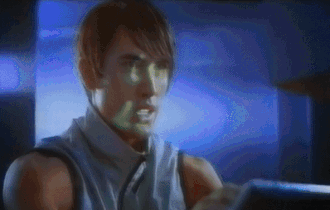
A more balanced approach was adopted for the second music video, which was – allegedly – shot in readiness to launch We Think It’s Love in the UK. This time, Leah Haywood is shown entering a modern house, where she wanders around while singing. Halfway through, there’s a transition shot, and her surroundings first become a hedge maze, then a forest, which she continues to traverse. Once again, the key change involves water pouring down on Leah Haywood, though now it’s because she’s suddenly standing under a waterfall. While the concept is more abstract from the sentiment of We Think It’s Love than the first video, it complements the song better. Visual effects are still present, such as time-lapse sequences and images of water and trees being superimposed on one of the house’s interior walls. However, the overall styling is toned down. Without any extras or bombastic dance routines to pull focus, the visuals present Leah Haywood in a way that comes across as more authentic and grounded. It offers a credible showcase of her – and the track – for an international audience if that was indeed the aim.

We Think It’s Love went on to be a fairly big hit in Australia. The track reached #7, spent an impressive 18 weeks in the top 50 of the ARIA chart and was the 79th biggest-seller of 2000. However, despite the alternate music video and a UK release specifically being mentioned during promotion of the next single, Crazy, that never happened. It’s not even a case of the song being sent to TV and radio before getting cancelled at the last moment. Whatever plans Sony might’ve had for We Think It’s Love didn’t amount to anything at all. Instead, the focus of the campaign remained on Australia. Several hits followed for Leah Haywood, but none matched the success of her debut (Crazy peaked at #31, the brilliant, Britney-esque Takin’ Back What’s Mine reached #18, and Summer Of Love failed to chart).
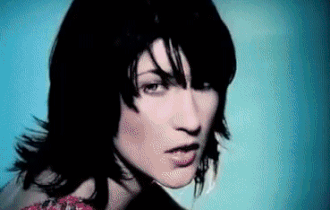
An album – Leah – reached #40, and several tracks from it, including We Think It’s Love, did get some international exposure when they were featured as incidental music in Neighbours. However, for all intents and purposes, Leah Haywood’s pop career seemed to have faltered. Undeterred, she moved to America in 2002, where several record labels had shown interest in signing her, though nothing materialised. To get by in the meantime, she and her partner (Daniel James) formed Dreamlab, selling demos on Craigslist. One of their songs caught the interest of a composer; he invited them to develop one of his acts: Aly & AJ, who signed with Disney’s Hollywood Records. Dreamlab worked extensively on the duo’s debut album – Into The Rush – and co-wrote the single Rush, which peaked at #59 on the Billboard Hot 100.

Consequently, they stuck close to Hollywood Records and contributed material for many ‘00s Disney Channel acts (Vanessa Hudgens, Miley Cyrus, Selena Gomez, Demi Lovato). However, Dreamlab aren’t defined by that, having also been credited on tracks by Nicki Minaj (Marilyn Monroe), Justin Bieber (Off My Face) and Katy Perry (Never Really Over). Leah Haywood even stepped back into the spotlight as a singer — now known only as Haywood — and released her second album, Pressure On My Heart, in 2022.
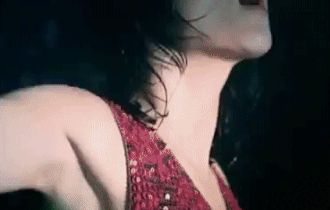
Whether a UK release for We Think It’s Love would’ve changed the overall trajectory of Leah Haywood’s career (or whether she’d even have wanted it to) is debatable. And it’s difficult to know how the track would’ve fared. In principle, We Think It’s Love is catchy, radio-friendly and feels like one of those songs that would’ve been requested incessantly on TV stations like The Box. So, with decent video rotation and airplay, a top-20 hit – at the very least – wasn’t out of the question. However, by mid-2000, when the song was due to be released in the UK, many female artists were seen to be competing for much the same teen audience. Indeed, Mandy Moore had already been squeezed out after two singles. Leah Haywood would almost certainly have been lumped into the same demographic (regardless of the Cheiron connection) and probably never given the consideration she deserved.

Unfortunately, the inevitable consequence of not releasing We Think It’s Love in the UK is that it remains largely unknown, which is a massive shame. The track is excellent and brimming with such potential that it would’ve found an appreciative audience somewhere along the way.



